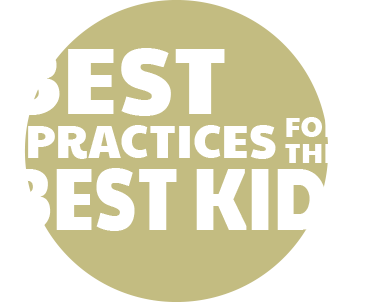
Age Regression: How Long Does Toddler Regression Last After a New Baby Joins the Family?
There’s nothing quite like welcoming a new baby into your home, except maybe trying to explain it to your toddler. One day they’re potty trained, sleeping through the night, and chattering up a storm. The next, they’re asking for a pacifier, throwing their dinner on the floor, or suddenly refusing to sleep alone. If this sounds familiar, you’re not alone. Many toddlers experience some form of age regression after a new sibling arrives.
We know how confusing this can be, especially when you’re juggling midnight feedings, toddler tantrums, and a very real lack of sleep. But regression isn’t a step backward in your child’s development, it’s a sign they’re adjusting to a big change. Understanding what’s happening (and why) can help you respond with more patience, and maybe even a little more confidence. Let’s walk through what regression looks like, how long it tends to last, and what you can do to support your child through it.
The Short Answer: When Does Age Regression End?
Most toddlers show regressive behavior for 2 to 6 weeks after a new baby arrives, though it can last longer depending on their age, temperament, and how the transition is handled. With consistent routines, enriching activities, and lots of reassurance, regression typically fades as your toddler finds their new place in the family.
Understanding Toddler Regression
Regression can catch you off guard. One moment your toddler is beaming with pride over using the potty or putting on their shoes, and the next they’re demanding to be carried everywhere and throwing their blocks in frustration. What’s happening?
At its core, toddler regression is a stress response. When a major change—like the arrival of a new baby—shifts the emotional ground beneath them, young children may retreat to earlier behaviors that once brought them comfort. It’s not manipulation or misbehavior. It’s their way of asking, “Am I still safe? Am I still important?”
Toddlers thrive on predictability, and nothing scrambles their routine quite like a new sibling. With so much attention going to the baby, your older child may feel uncertain about their role. Regression, such as speech regression, renewed separation anxiety, or even accidents after potty training success, is often their way of coping.
This kind of behavior may look inconvenient or even puzzling from the outside, but for your toddler, it’s a lifeline. Understanding it as part of a natural adjustment process allows us to meet them with empathy, rather than frustration. In other words, they’re not “acting out,” they’re reaching out.
Common Age Regression Signs and Behaviors
Every toddler responds to change differently, but when regression enters the picture, a few familiar patterns tend to show up. Knowing what to watch for can help you spot the signs early and respond with confidence—not panic.
Sleep is often one of the first things to go. A toddler who was sleeping peacefully in their own bed might suddenly wake up multiple times a night, refuse naps, or insist on being rocked again. Others may become unusually clingy, shadowing you around the house or melting down when you step into another room.
You might also notice behaviors that feel like a rewind: asking for bottles, baby talk, or forgetting words they recently learned—classic signs of speech regression. Some toddlers may test boundaries with biting or head banging, especially if they’re struggling to express big feelings in a small body.
And then there are the quieter forms: increased whining, refusing to dress themselves, or losing interest in the activities they used to enjoy.
Whatever the form, regression isn’t about being difficult. It’s about expressing distress the only way they know how. Our job isn’t to “fix” these behaviors overnight—it’s to help them feel safe enough to grow through them.
Factors Influencing Toddler Age Regression Duration
We’re often asked, “How long will this last?” And while we wish we could give you a set number of days circled on the calendar, the truth is that regression doesn’t work on a strict schedule. That said, there are a few key factors that tend to influence just how long it sticks around.
One major piece of the puzzle is your toddler’s age and developmental stage. Younger toddlers—those still getting the hang of communication or managing their emotions—may take a little longer to bounce back. If your child is already going through a big leap (like learning new words or potty training), adding a new sibling into the mix can temporarily derail progress.
Temperament plays a role, too. Some children are more adaptable, while others need extra time and reassurance when routines shift. Kids who tend to be more sensitive or anxious might hold onto regressive behaviors longer.
Then there’s the environment. If there’s also been a move, a new caregiver, or shifts in your own energy and availability, that can add fuel to the fire.
What helps the most? Predictability, connection, and patience. When your child feels grounded (knowing when meals are coming, where they’ll sleep, and that your love hasn’t budged) the regression usually begins to ease.
Effective Coping Strategies
So how do you ride out this season without losing your mind or your patience? The good news is, you’re not powerless. There’s a lot you can do to support your toddler through regression and help them feel secure, even in the midst of change.
First, lean hard into routine. Predictability is your toddler’s best friend right now. Keep mealtimes, nap schedules, and bedtime rituals as consistent as possible, even if the baby’s needs are pulling you in different directions.
Next, carve out small pockets of one-on-one time. It doesn’t have to be a full-blown adventure, just 10 minutes of undivided attention doing something they choose, whether it’s reading a book, playing cars, or helping you mix pancake batter. These moments send a powerful message: You still matter. I see you.
You can also invite your toddler into the world of the new baby. Let them hand you a diaper, sing a lullaby, or “teach” the baby something simple. Including them fosters a sense of belonging, instead of competition.
When regressive behaviors crop up, try not to shame or scold. Gently name what you’re seeing (“I notice you’re using your baby voice today”) and offer support instead of punishment.
Finally, build in outlets for expression. Sometimes, regression is your child’s way of saying, “This is too much for me.” Enriching playtime, outdoor movement, and sensory activities can go a long way in helping them process big feelings without tipping into meltdown territory.
Regression isn’t a behavior to fix, it’s a signal to listen. When we respond with calm, connection, and compassion, we teach our children something even more important than growing up: that it’s okay to reach out when they feel overwhelmed.
When to Seek Professional Help
Regression is often a phase. Still, there are times when what you’re seeing may point to something deeper than a reaction to a new sibling. If your child’s regressive behaviors are intense, long-lasting, or interfering with daily life, it’s worth checking in with a professional.
For instance, if your toddler is still experiencing speech regression or trouble sleeping several months after the baby arrives, or if behaviors like biting or head banging escalate in frequency or intensity, those are signs to take seriously. Likewise, if your child seems persistently sad, withdrawn, or overly aggressive (not just in occasional moments, but as a pattern) that’s not something you have to navigate alone.
Start with your pediatrician. They can help determine whether the behavior is within the range of normal adjustment or if it’s time to loop in a child psychologist, occupational therapist, or developmental specialist. Reaching out is never overreacting, it’s just another way of showing up for your child.
Long-Term Impacts and Sibling Relationships
Here’s something that often gets missed in the shuffle: how you respond to regression now can shape the long-term relationship between your children.
When toddlers feel supported, not pushed aside or punished, they’re more likely to embrace their role as an older sibling with pride. Over time, those early feelings of jealousy can turn into protectiveness, curiosity, and genuine affection. It’s not just about managing the meltdowns; it’s about planting seeds for sibling connection that lasts.
Think of this as a critical window for helping your toddler feel safe in their new identity. Small gestures, like praising their “big kid” efforts or inviting them to co-create enriching moments with their sibling, can make a lasting impression.
In other words, this phase isn’t just something to survive. It’s a chance to nurture both your toddler’s emotional growth and the beginnings of a lifelong bond between siblings.
Toddler Age Regression After a New Baby Joins the Family: Final Thoughts
Toddler regression after a new baby can feel like you’re walking backwards just when you thought you were hitting your stride; but it’s not a sign of failure. It’s a normal, temporary reaction to a big shift in your child’s world. From clingy behavior and speech regression to trouble sleeping or sudden outbursts, these signs are all ways your toddler is working through change.
The good news? With steady routines, emotional connection, and a little grace (for them and for you), things settle. And when they do, you’re not just surviving a hard phase; you’re building resilience, empathy, and connection that lasts well beyond it.

We’ve created an environment where your child will feel physically and emotionally secure and happy. Feeling secure unlocks confidence and learning potential, allowing for natural exploration and inquiry about the world. Find out more today!
Nothing is more important than your child's safety and security. Strong Start is built on the promise of creating an environment where all children feel physically and emotionally secure. That sense of security and peace of mind will be extended to you as a parent as well.
SEE STRONG START ON NATIONAL NEWS!
Featured on CBS Eye On The Money Segment
SEE STRONG START ON NATIONAL NEWS!
Featured on CBS Eye On The Money Segment



